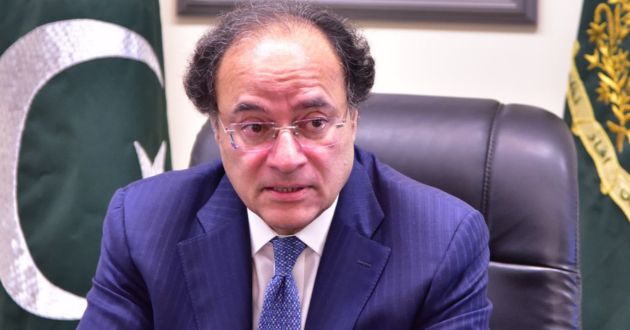ISLAMABAD: Federal Minister for Finance and Revenue, Senator Muhammad Aurangzeb, stated on Thursday that the country’s retail sector, which contributes a substantial 19% to the national GDP, pays only 1% in taxes, raising concerns over its limited contribution to the national exchequer.
Speaking at the conference “Retail Reimagined: Innovate, Collaborate & Thrive”, organized by The Pakistan Retail Business Council (PRBC), the minister emphasized that the disproportionate tax burden on the manufacturing, services industry, and salaried class is unsustainable.
“We need to bring other segments, including agriculture, real estate, retail, and wholesale, into the tax net,” he stressed.
He commended the provincial governments for taking steps in this direction by passing bills in their respective assemblies to impose agricultural taxes.
The minister highlighted that the government has been engaging with the retail sector, urging them to formalize their businesses and contribute their due share of taxes. “For the national interest, we cannot afford to let people take a free ride anymore,” he said, adding that documentation was key to achieving this objective.
He pointed out that Rs9.4 trillion in cash circulation needs to be brought into the formal economy, acknowledging that while this transition cannot happen overnight, the government remains committed to moving in the right direction.
The minister noted that the economy has shown significant improvement, with macroeconomic stability taking hold as the currency stabilizes, foreign exchange reserves increase, and inflation recedes. Additionally, the policy rate has decreased substantially, leading Kibor to drop from 23% to around 11%.
ALSO READ PIA to operate special charter flights for fans, teams for ICC Champions Trophy 2025
These positive developments, he added, have not gone unnoticed, as foreign investors are once again recognizing Pakistan’s economic potential. Institutional investments are returning, with inflows in both debt and equity markets.
Senator Aurangzeb stated that Pakistan is actively engaging with international rating agencies with the clear objective of upgrading its credit rating to the “Single B” category. He highlighted that the country had already made notable progress in this regard, securing an upgrade in the previous calendar year. Building on this momentum, Pakistan remains hopeful for another upgrade, which would have significant economic implications.
Achieving a “Single B” rating would enhance Pakistan’s credibility among international investors, allowing the country to diversify its funding base and regain access to global capital markets. This, in turn, would help re-establish Pakistan as a “bankable brand”, marking a key milestone in its economic recovery.
He further emphasized that the government is committed to achieving sustainable and inclusive growth, rather than repeating past cycles of economic booms and busts.
Structural reforms in taxation, energy, state-owned enterprises (SOEs), and public finance are underway, with a major overhaul of the taxation system focused on end-to-end digitization. This initiative aims to enhance transparency, reduce revenue leakage, and combat corruption.
The introduction of faceless customs has already yielded promising results, with 80% of imports now being cleared within 18-19 hours, significantly down from the previous 118-hour timeframe. This streamlined process has curbed the culture of facilitation money, fostering a more efficient and trustworthy tax system.
In the energy sector, the minister noted that efforts are being made to transition towards a competitive energy market.
Additionally, he mentioned that a cabinet committee, chaired by him, is leading reforms across 43 ministries with 400 departments. So far, 20 ministries have undergone restructuring, and the process is expected to be completed by the end of June.
The minister concluded by stating that the private sector is being positioned as the primary driver of economic growth, with the government providing a stable policy framework and ensuring policy continuity. To achieve fiscal discipline, the government has initiated a right-sizing exercise and implemented pension reforms.














